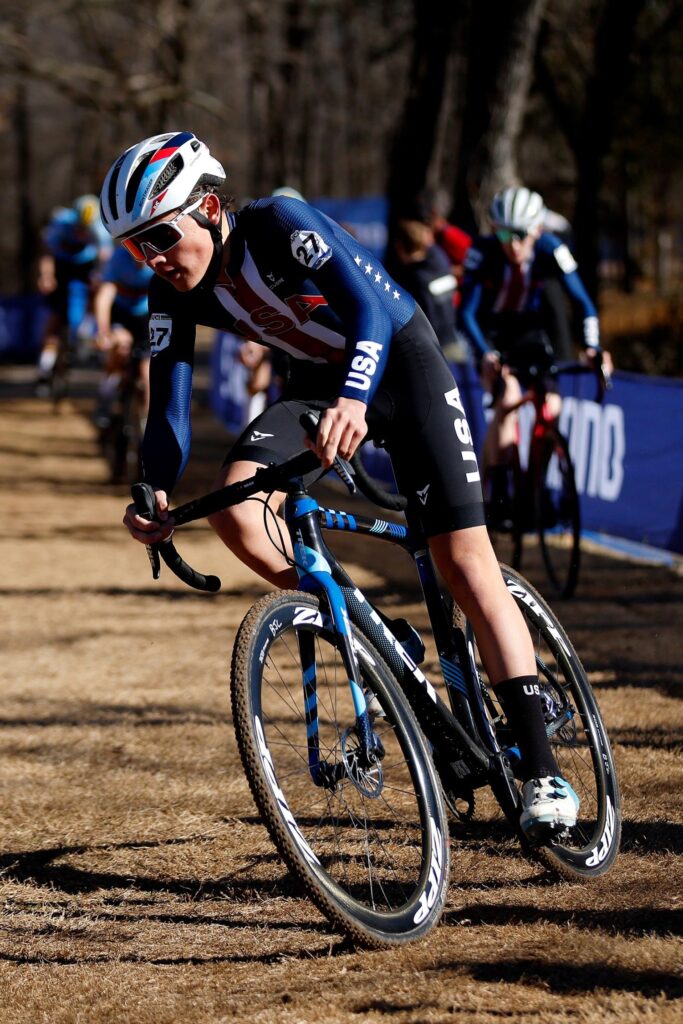In a bold assertion of athlete activism, a U.S. cyclist is drawing national attention by taking a stand against the participation of transgender women in female sports. The cyclist, whose stance has sparked both support and controversy, argues that allowing men to compete in women’s categories undermines the integrity of female athletics. As discussions around gender identity and sports eligibility continue to dominate headlines, this cyclist’s actions have ignited a renewed debate about fairness, inclusion, and the future of competitive sports for women. In this article, we delve into the cyclist’s perspective, the broader implications of their stance, and the ongoing discourse surrounding gender dynamics in athletics.
U.S. Cyclist Advocates for Fair Play in Women’s Sports
The increasing visibility of women’s sports has sparked a heated discussion surrounding the participation of transgender athletes in female categories. A prominent U.S. cyclist has emerged as a vocal advocate for maintaining fairness in women’s sports, emphasizing the need to protect the integrity of female competitions. This athlete argues that allowing biological males to compete in women’s events undermines the hard-fought achievements of women athletes and creates an uneven playing field. The debate centers on several key concerns:
- Safety: The physical differences between male and female athletes can pose significant risks in contact sports.
- Fairness: Many believe that the physiological advantages gained during male puberty create disparities in performance.
- Opportunities: Female athletes fear that their chances for scholarships and sponsorships may diminish if male athletes compete in their divisions.
As this discussion unfolds, key sporting organizations and policymakers are urged to reevaluate their positions on inclusion and equity. Numerous studies highlight the profound effects of biological differences on athletic performance, spurring the cyclical debate regarding inclusion and the principles of fairness. The cyclist’s stance has not only gained traction among fans and fellow athletes but also emphasizes the importance of creating a dialogue that encompasses all perspectives. This ongoing discourse reflects a critical juncture in the sports community where values of equality and competitive integrity must be balanced.
| Key Issues | Supporting Arguments |
|---|---|
| Physical Safety | Potential risk of injury from mismatched strength levels |
| Competitive Balance | Concerns over fairness and equal opportunity |
| Funding & Sponsorship | Impact on resources available to female athletes |
The Impact of Inclusion Policies on Female Athletes
The ongoing debate surrounding inclusion policies in sports, particularly those affecting female athletes, has gained significant attention following statements from prominent figures in the cycling world. As discussions intensify, key concerns have emerged regarding how these policies impact competitive fairness and the overall experience of women in sports. Advocates argue that all athletes deserve the opportunity to compete, while opponents fear that the inclusion of transgender women in female competitions may compromise the integrity of women’s sports.
Research from various sporting organizations has attempted to quantify the effects of these policies, revealing mixed results. Some studies suggest that the inclusion of transgender women has not statistically altered competitive outcomes, while others highlight instances where established female athletes feel overshadowed. The data presented below captures the current landscape in women’s cycling, illustrating the divergent perspectives within the community:
| Impact Category | Advocates’ Perspective | Opponents’ Perspective |
|---|---|---|
| Competitive Fairness | Greater inclusivity leads to broadened participation. | Presents an imbalance in physicality and performance. |
| Psychological Impact | Inspires young athletes to pursue their goals. | Fosters a sense of frustration among cisgender female athletes. |
| Sponsorship Opportunities | Encourages brands to diversify their athlete rosters. | Risk of alienating traditional sponsors and fans. |
Strategies for Upholding Competitive Integrity in Sport
In the ongoing debate regarding the participation of transgender athletes in women’s sports, maintaining a foundation of fairness and competitive integrity is paramount. Upholding these principles requires not only strict adherence to existing regulations but also a commitment from athletes, organizations, and governing bodies to engage in open discussions. Key strategies include:
- Transparent Policies: Establish clear guidelines about eligibility criteria for athletes based on gender, ensuring transparency in all decisions.
- Fairness Audits: Regular assessments should be carried out to examine the impact of policy changes on the competitive landscape, ensuring they do not inadvertently disadvantage certain groups of athletes.
- Inclusive Dialogues: Foster discussions among athletes, coaches, and regulatory bodies to ensure all voices are heard, promoting a culture of inclusivity while protecting competitive fairness.
Beyond immediate policy adjustments, a dedicated approach to education and awareness can reinforce these strategies. Implementing workshops and training for athletes and coaches about the nuances of gender identity in sports can cultivate a more understanding environment. Additionally, collecting data on participation rates and outcomes can provide the necessary insights to guide future decisions. The establishment of independent review panels can further enhance the credibility of the process, ensuring decisions are made with impartiality. Below is a sample of key stakeholders involved in this movement:
| Stakeholder | Role |
|---|---|
| National Sports Federations | Set competition guidelines and policies |
| Coaches | Advocate for fair play and support athletes |
| Athletes | Engage in dialogue and advocate for their rights |
| Researchers | Provide data-driven insights on the effects of policy |
To Wrap It Up
In conclusion, the ongoing debate surrounding the participation of transgender women in women’s sports continues to provoke strong opinions across the nation. The actions of U.S. cyclists who are taking a stand against these policies highlight the complexities and passionate emotions tied to this issue. As sporting organizations and advocates grapple with questions of fairness, inclusion, and the integrity of competition, it is clear that this conversation is far from over. As more athletes make their voices heard, the landscape of sports may be on the brink of significant transformation. Stakeholders from all sides will need to engage in thoughtful dialogue to address these pressing concerns and work toward a resolution that honors the values of both equity and competition in athletics.











